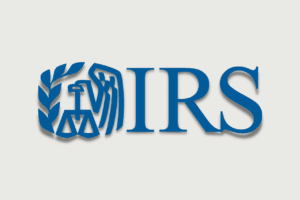Solar & Renewable Energy Tax Credits
Rooftop solar finds out utilities can disrupt, too
The article below points out how the utilities are fighting the solar industry by increasing their demand charges to compensate for customers generating their own power from solar. As some states and utilities define the rules of the game other states will follow suit. It also mentions how the regulations being in a state of […]

Administration’s FY 2016 Budget Offers Promising Proposals
On February 2, President Barack Obama introduced his fiscal year (FY) 2016 budget, requesting a total of $49.3 billion for Department of Housing and Urban Development (HUD) programs and proposing significant policy changes aimed at improving the Low-Income Housing Tax Credit (LIHTC) program and a proposal to modify and permanently extend the New Markets Tax Credit (NMTC) program.
Green Tax Incentive Compendium: Federal and State Tax Incentives for Renewable Energy and Energy Efficiency
This volume presents certain federal and state tax incentives promoting the renewable energy and energy efficiency industries. Each section outlines the basic features and regulatory requirements for a tax program which provides financial incentives for clean technology development through renewable energy and energy efficiency projects. Download

Legislation and Report Target Tax Reform
On Dec 11, 2014, House Ways and Means Committee chairman Rep. Dave Camp H.R. 1, released the Tax Reform Act of 2014 and U.S. Senate Senate Finance Committee Republican staff released the report “Comprehensive Tax Reform for 2015 and Beyond.” Both the legislation and the report have implications for the future of housing tax credits.
Net Zero and Living Building Challenge Financial Study: A Cost Comparison Report for Buildings in the District of Columbia
The District of Columbia Department of the Environment have released the findings of a recent study detailing how the District, already home to more green buildings per capita than other large cities, can best craft policy and create incentives to build zero energy, zero water and Living Buildings™. The study, Net Zero and Living Building […]
Green Tax Incentive Compendium: Federal and State Tax Incentives for Renewable Energy and Energy Efficiency (July 2014)
This volume presents certain federal and state tax incentives promoting the renewable energy and energy efficiency industries. Each section outlines the basic features and regulatory requirements for a tax program which provides financial incentives for clean technology development through renewable energy and energy efficiency projects. A “Western U.S.” version is also available. Contact Jerome Garciano […]
Retrofit Case Study: Loft 27, Lowell, Mass.
Boston-based WinnCompanies has cut its electric bill for common areas by 25% at Loft 27, a 173-unit apartment building, as the result of efficiency retrofit and solar projects completed in 2012. The apartment development was created from the adaptive re-use of an historic former mill. Download
Ultimate Green: Residents Save Money at New Solar-Powered Apartment Property in Southern California
Residents get their electricity mostly for free at Arbor Green Apartments, a new 40-unit low-income housing tax credit (LIHTC) development in Los Angeles County. The reason? A sprawling rooftop solar photovoltaic (PV) system at the site that supplies nearly all of the power for the entire property, including the apartments and common areas. Download

HUD Notice has potential to encourage broad PHA renewable energy rollout
Housing authorities that are seeking alternate energy sources or new funding streams will be particularly interested in HUD’s latest PIH notice. It ushers in a number of programmatic changes in an effort to increase the use of on-site renewable energy technology at federally subsidized housing projects. http://www.ballardspahr.com/alertspublications/legalalerts/2014-08-20-hud-notice-has-potential-to-encourage-broad-pha.aspx
Would You Rather Own or Lease Your Rooftop Solar?
On a recent trip to Australia, I noticed that very few residential solar systems are leased. The vast majority are customer owned. Talking to industry experts, some claimed more than 90 percent of residential solar systems in Australia are customer owned. This is in stark contrast to the U.S., where last year 66 percent of […]
Clean Energy Finance 101
As innovative energy products and services come to market, so do new mechanisms to fund them. And existing funding options become more popular. This has resulted in a boom of finance jargon, especially regarding energy efficiency and renewable generation. Though many of the finance terms used in clean energy finance are similar to those used […]

IRS Clarifies Effect of Sequestration on Section 1603 Recipients
The Internal Revenue Service (IRS) recently released Notice 2014-39 clarifying questions related to Section 1603 renewable energy cash grant recipients. The Notice provides that the Section 1603 Payment resulting from sequestration during the affected time period does not affect the amount of the Section 1603 Award or the basis of the specified energy property taken into account for purposes of determining the award.